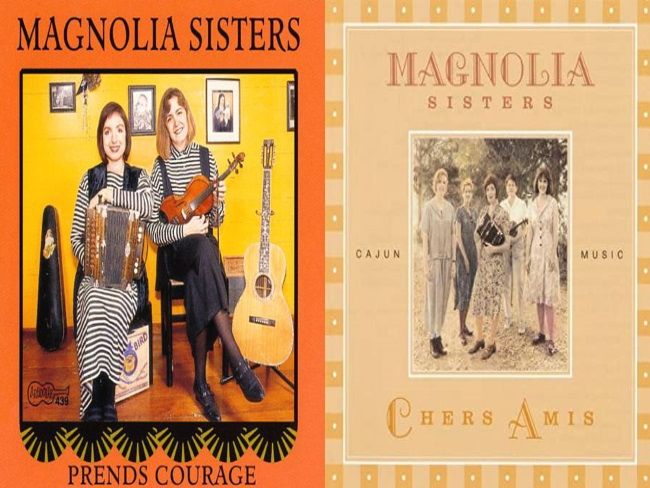A couple years ago a friend and I hopped in my car and drove some 1200 miles south to a small town in Louisiana to attend a crawfish festival. I have many fond memories of that trip including sitting at the home of strangers who had taken us in and eating crawfish until we broke out in hives as well as spilling hot sauce all over my new white shirt. Also amongst my remembrances is the wonderful music at the festival. There were three or four large stages that constantly had zydeco musicians plying their trade. Crowds gathered in front of each to listen and to dance with beers in hand. Wandering around the festival grounds, we came upon a small tent which an even smaller stage. The crowd, as well as the musicians, were older. The senior citizens were here to listen and dance to Cajun music.
In the simplest terms, Cajun is the music of the French-speaking whites who migrated to the southern United States from Acadiana, what is now Nova Scotia. Zydeco is a branch of this music by French-speaking blacks which really took on a life of its own after World War II. For a better explanation, check out the website of the Cajun French Music Association.
The Magnolia Sisters play Cajun music that is steeped in the traditional but with a few nods to today’s landscape. At the time of their first album, Prends Courage, in 1995, the Magnolia Sisters were Ann Savoy on accordion and Jane Vidrine on fiddle supported by a coterie of guest musicians. Being well-versed in Cajun culture and music, the CD’s liner notes contain brief explanation of the songs as well as English translations of the French titles and lyrics.
There is tremendous variety to be had. For instance, “Ma blonde est partie” is an oft-played piece by Cajun performers while “Chere bassette” is notable for being rarely played. The upbeat two-step “Les fils à Nonc Hilaire” sits well next to the haunting a cappella ballad “Sur le bord de l’eau.” “Braille pas, joil ‘tits yeux bleus” borrows from country music and has some English vocals giving it a unique, lonesome feel. The Sisters included a rendition of “Mama Roseanne” noting how they love its “pseudo-Caribbean” rhythm.
Aside from the rollicking accordion leads and great playing all-around, the vocal harmonizing is also notable on songs such as the aforementioned “Mama Roseanne” and “Les memoires dans mon Coeur.“ Being an all-woman band is very rare in Cajun music as the Magnolia Sisters admit. Going beyond sheer novelty, this is exploited by their choice of material and even changing lyrics to reflect their point of view. A good example is “Il savait pas j’étais mariée (He Didn’t Know I Was Married),” which was suitably modified to reflect the young woman whose heart is broken by an older married man. Another is the medley “Dors, dors/Fais do do (Sleep, Sleep/Go to Sleep)” with its lyrics, “Listen to your mama, dear/Your mama’s caring for you.”
Five years and three new members later, the Magnolia Sisters released Chers Amis. Tina Pilione, Christine Balfa, and Lisa Trahan Reed were enlisted and they add their musical as well as vocal talents to the mix. The fast dance tune “’Tit Mamou” begins the set and it becomes obvious that they’ve picked up where Prends Courage left off. The variety continues with “C’est Si Triste,” an old blues number by Cleoma Falcon dating back to 1929. “Il Faut Hisser Ces Voiles” is an a cappella piece sung by Savoy and Vidrine in their wonderful harmony. And western swing enters the picture courtesy of a rendition of “Hé, Là-Bas” by the Hackberry Ramblers.
Prends Courage and Chers Amis complement one another quite well. Each album is a bit of a history lesson into Cajun music. They put traditional Cajun music on display and demonstrate how diverse the genre is by showing the various influences the music and musicians have had over the years. But the Magnolia Sisters also do what folk musicians have always done – they make the songs of others their own by mixing up instruments and altering lyrics to suit their needs and the demands of the present.
(This was originally published at The Green Man Review back in 2003-08.)

No comments:
Post a Comment